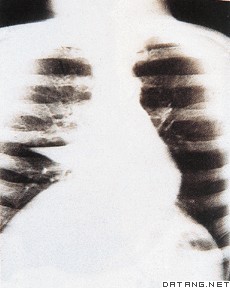1) Recruited volume


肺复张容积
1.
Effects of positive endexpiratory pressure on lung recruited volume and oxygenation in patients with acute respiratory distress syndrome;
呼气末正压对急性呼吸窘迫综合征肺复张容积及氧合影响的临床研究
2.
Objective: To access the effect on alveolar recruitment of positive endexpiratory pressure (PEEP) and to investigate lung recruited volume directing PEEPin acute respiratory distress syndrome(ARDS).
目的:评价呼气末正压(PEEP)对急性呼吸窘迫综合征(ARDS)肺复张容积的影响,探讨ARDS患者测定肺复张容积对选择PEEP的指导意义。
3) Lung recruitment


肺复张
1.
Effects of different levels of positive end expiratory pressure on lung recruitment and hemodynamics after sustained inflation in acute respiratory distress syndrome in sheep;
不同呼气末正压水平对绵羊急性呼吸窘迫综合征模型肺复张效果及血流动力学的影响
2.
Exploratory development of PEEP stepwise increase on lung recruitment maneuvers in acute respiratory distress syndrome.
呼气末正压递增法肺复张在急性呼吸窘迫综合征治疗中的应用研究
3.
Objective To investigate the effects of sustained inflation (SI) combined with small tidal volume ventilation on lung recruitment and hemodynamics in patients with acute lung injury (ALI).
目的 探讨控制性肺膨胀 (SI)同小潮气量通气模式结合对急性肺损伤 (ALI)患者的肺复张作用及其对血流动力学的影响。
4) Lung recruitment maneuver


肺复张
1.
Effects of lung recruitment maneuver on oxygenation and hemodynamics after open endotracheal suctioning in acute respiratory distress syndrome;
肺复张对急性呼吸窘迫综合征患者开放吸痰后氧合及血流动力学的影响
2.
Methods Fifteen ARDS cases ventilated and monitored by the pulse contour method (PiCCO) were randomized into APRV group and CPAP group, then lung recruitment maneuver (RM) was executed every 4 hours.
目的探讨气道压力释放通气(APRV)与持续气道正压(CPAP)通气两种通气模式实施肺复张策略治疗急性呼吸窘迫综合征(ARDS)对血流动力学、肺力学和氧代谢指标的影响。
5) Recruitment maneuver


肺复张
1.
Recruitment maneuvers are more and more important in the patients with acute respiratory distress syndrome(ARDS) receiving mechanical ventilation.
在急性呼吸窘迫综合征患者机械通气中,肺复张策略越来越受到重视。
2.
Effect of recruitment maneuver on alveolar epithelium barrier in rat with acute lung injury Objective To evaluate the influence of recruitment maneuver (RM) on alveolar epithelium barrier in rat with acute lung injury (ALI).
目的探讨肺复张(RM)后不同潮气量(Vt)对急性肺损伤(ALI)肺泡上皮细胞屏障功能的影响。
6) lung recruitment maneuver


肺复张术
1.
Clinical effect of lung recruitment maneuver on hypoxemia for post operative cardiopulmonary bypass cardiac surgery patients;
肺复张术在心脏外科手术后低氧患者的疗效观察
补充资料:肺不张
| 肺不张 atelectasis 各种胸部疾病引起的一侧肺、肺叶或肺段含气量减少并伴体积缩小的疾病。病因大致可分为 4 类:①阻塞性肺不张。异物、粘稠分泌物、血块阻塞支气管管腔,或支气管肿瘤 、支气管结核引起支气管腔闭塞,纵隔肿瘤及邻近肿大的淋巴结压迫都可造成支气管腔阻塞,其远端肺泡内气体被吸收而形成肺不张。②压缩性肺不张。自发性气胸、大量胸腔积液、巨大肺大泡、肺内巨大肿物及膈肌高位等压迫肺组织从而形成肺不张。③纤维收缩性肺不张。见于肺结核和弥漫性肺间质纤维化。④肺表面活性物质缺乏。 临床上以阻塞性肺不张最为常见。肺不张的临床表现因阻塞部位及起病急缓而异。小块肺不张或病情进展缓慢者症状很少或无症状。多叶或一侧肺不张,尤其是突然发病者常出现明显呼吸困难、胸痛、咳嗽、紫绀、心悸;合并感染者可有咳痰、发热。小块肺不张体检时无异常体征。一叶或全肺不张时肋间隙变窄,呼吸运动减弱,气管和心脏向患侧移位,叩诊浊音或实音,呼吸音减低或消失。 病史、症状和体征对肺不张的诊断有一定帮助。 X 射线检查是诊断本病的可靠手段。 X 射线胸片可见肺容积缩小 ,密度增加,不张的肺叶内血管和支气管聚拢,此外还可根据 X 射线胸片进一步确定肺不张的范围和部位。CT检查对本病的诊断也可提供重要的资料。纤维支气管镜检查是诊断肺不张最有价值的手段,不仅可直接看到阻塞病变,明确阻塞部位,还可进一步通过活检确定病因。
治疗主要针对原发病,如肿瘤所致者应争取早期手术切除肿瘤;由异物、痰栓,血块引起者可考虑用纤维支气管镜进行治疗。 |
说明:补充资料仅用于学习参考,请勿用于其它任何用途。
参考词条
